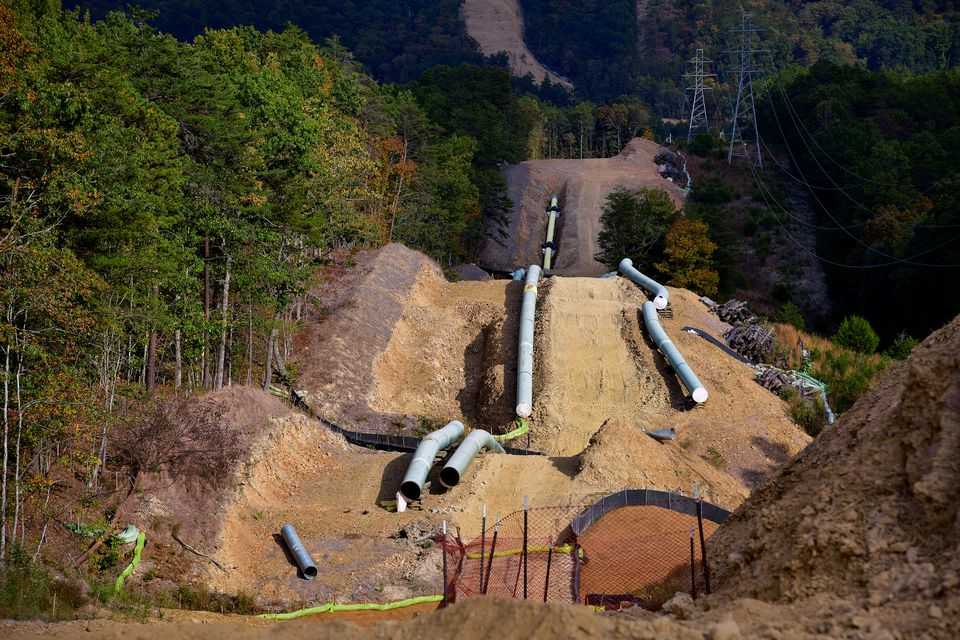
Supreme Court allows completion of gas pipeline along Virginia forests
Staff Writer
The United States Supreme Court (SC) has, on July 27, lifted an obstacle to completing the long-delayed Mountain Valley Pipeline, dealing a blow to environmental groups opposed to the West Virginia-to-Virginia pipeline led by Equitrans Midstream. The justices granted Mountain Valley Pipeline LLC’s request to lift stays imposed by a lower court that had halted construction of a final short section of the 303-mile natural gas pipeline. The project, which has been tangled in numerous court fights since construction began in 2018, is considered key to unlocking more gas supplies from Appalachia, the largest shale gas-producing basin in the United States.

SC has lifted orders by the U.S. Court of Appeals for the 4th Circuit that had put construction in the Jefferson National Forest, in southern Virginia. The Mountain Valley Pipeline, a controversial $6.6 billion natural-gas pipeline, is nearly finished. The company claims that finishing the pipeline will provide a more reliable supply of natural gas at reasonable prices. The environmental groups argue that the project will harm waterways home of endangered fish species.
The dispute centered on legislation enacted earlier this year by Congress to expedite the pipeline’s completion. The Fiscal Responsibility Act of 2023, signed by President Joe Biden, included a provision that ordered federal agencies to issue permits needed to complete the pipeline. The provision, Section 324, stripped federal courts of the power to review challenges to those permits and channeled all challenges to the constitutionality of the act to the U.S. Court of Appeals for the District of Columbia Circuit.
The company argued that the environmental groups’ only real argument was that Section 324 thereof is unconstitutional. The Biden administration agreed with the company that the 4th Circuit’s orders should be lifted. The environmental groups seeking to stop the pipeline urged the justices to leave the lower court’s orders in place, arguing that the effects of construction activities could be disastrous, particularly for endangered species in the area where construction will take place. The groups rejected any suggestion that Section 324 bars the 4th Circuit from weighing in on its constitutionality. The SC granted the pipeline’s request to lift the stay orders imposed by the lower court, in just a one-paragraph order issued after the arguments in the 4th Circuit had already begun.
Environmentalists argue that the project would harm soil and water quality in the forest and increase the use of natural gas, a leading fossil fuel and greenhouse gas emitter. The project, at the cost of $6.6 billion, was initially projected to be finished by late 2018, but has been delayed or canceled amid regulatory and legal fights with environmental and local groups in recent years.
[Based on Reuters, amylhowe.com]


